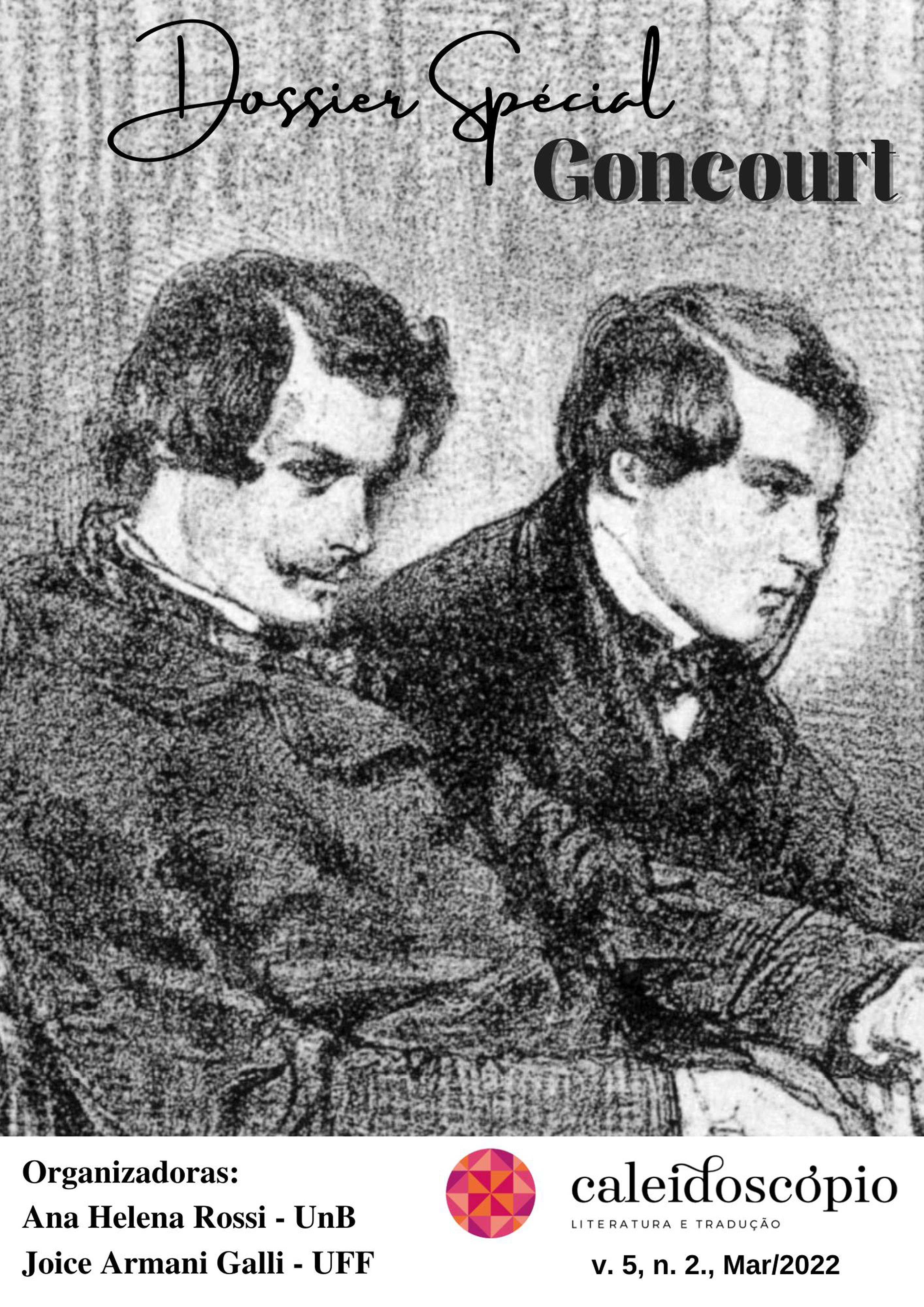O Choix Goncourt e o crítico em formação
relato de experiência
DOI:
https://doi.org/10.26512/caleidoscpio.v5i2.40993Keywords:
Choix Goncourt. Teoria literária. Crítica literária. Ferramentas metodológicas. Formação.Abstract
Dada a própria natureza do objeto de eleição dos Estudos Literários, o desenvolvimento de metodologias que auxiliem a análise das obras literárias e que guiem a educação e formação do crítico literário impõe consideráveis desafios não só ao aluno, como também aos educadores e às instituições que se propõem a ofertar a disciplina. O presente trabalho procura discutir de que maneira o Choix Goncourt du Brésil se qualifica como ambiente privilegiado para a formação do crítico, uma vez que coordena aquisição de bagagem teórica e aplicação prática, além de orientar as análises através da constituição e proposição de uma ferramenta metodológica: as fichas de notação coletivas.
Downloads
References
ABRAMS, M. H. O Espelho e a Lâmpada: teoria romântica e tradição crítica. São Paulo: Editora Unesp, 2010.
COMPAGNON, Antoine. O demônio da teoria: literatura e senso comum. Belo Horizonte: Editora UFMG, 2010.
EAGLETON, Terry. Teoria da literatura, uma introdução. São Paulo: Martins Fontes -- selo Martins, 2019
FREITAS, M. V. de. A teoria da literatura e as desumanidades. Aletria: Revista de Estudos de Literatura, [S. l.], v. 29, n. 3, p. 21–38, 2019. DOI: 10.17851/2317-2096.29.3.21-38. Disponível em: <https://periodicos.ufmg.br/index.php/aletria/article/view/18853>. Acesso em: 19 ago. 2021.
FREITAS, M. V. de. O problema do método nos estudos literários. 2018. (Apresentação de Trabalho/Conferência ou palestra)
RICHTER, David H. The Critical Tradition. Boston: Bedford/St. Martin’s, 2007.
Downloads
Published
How to Cite
Issue
Section
License
Copyright (c) 2022 Maria Clara Ferreira Guimarães Menezes, Kênia Barbosa Santos

This work is licensed under a Creative Commons Attribution-NonCommercial-NoDerivatives 4.0 International License.
Copyright Notice
- Authors retain copyright and grant the journal right of first publication with the work simultaneously licensed under a Creative Commons Attribution License that allows others to share the work with an acknowledgement of the work's authorship and initial publication in this journal.
- Authors are able to enter into separate, additional contractual arrangements for the non-exclusive distribution of the journal's published version of the work (e.g., post it to an institutional repository or publish it in a book), with an acknowledgement of its initial publication in this journal.
- Authors are permitted and encouraged to post their work online (e.g., in institutional repositories or on their website) prior to and during the submission process, as it can lead to productive exchanges, as well as earlier and greater citation of published work (See The Effect of Open Access).




.png)
